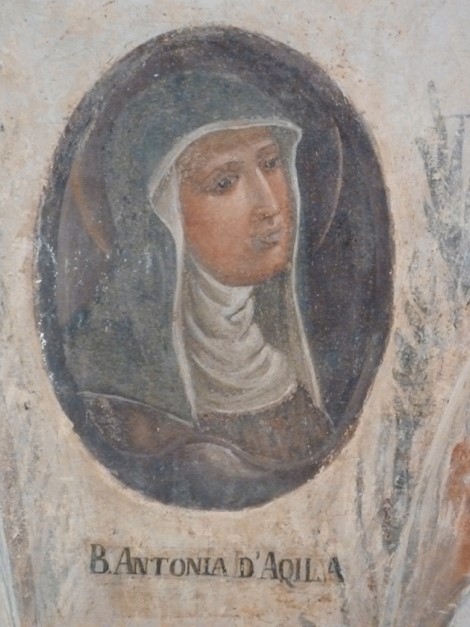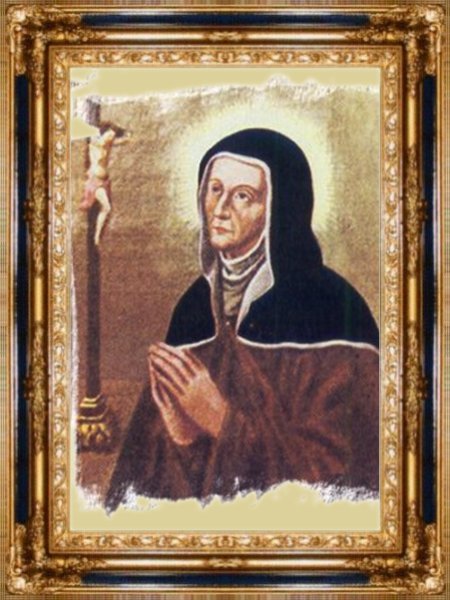Antonia was born of a noble family in Florence, Italy in 1401. She was married at an early age, had one child, and was widowed at the age of 27. Instead of permanently bemoaning her fate, she chose to embrace a life of penance.
She resolved to withdraw from the world and live only for God and the salvation of her soul. At the convent of Tertiaries, she was so distinguished by virtue and wisdom that only after a few years the superiors called her to Foligno to preside as superior of the convent there. Although the religious community zealously served God, it did not satisfy Blessed Antonia in her yearning for personal perfection. She felt strongly drawn to a stricter life, to more perfect poverty, and to a more complete renunciation of the world.
She endured harassment from relatives, great temptations and a long period of illness. Instead of seeing them as hindrances, she united them with Christ’s sufferings, accepting them as special marks of God’s love.
She founded an observant-oriented house of Poor Clares in Aquila and although she was appointed superior and abbess, she took on the lowliest of tasks, wore very worn clothes, and took on the most disagreeable occupations. She shunned all honor and distinction and showed the most sincere humility.
She had fallen sick for her last 15 years, and at the age of 70, she stepped down from her position. A year later she died on February 18, 1472, addressing words of comfort and holy exhortation to her sorrowing fellow sisters.
Pope Pius IX approved her veneration and her remains are located at her beloved Corpus Christi Monastery.
For God’s Glory.



